MLB: Five First-Round Fantasy Baseball Picks That Will Alter Your Draft Strategy
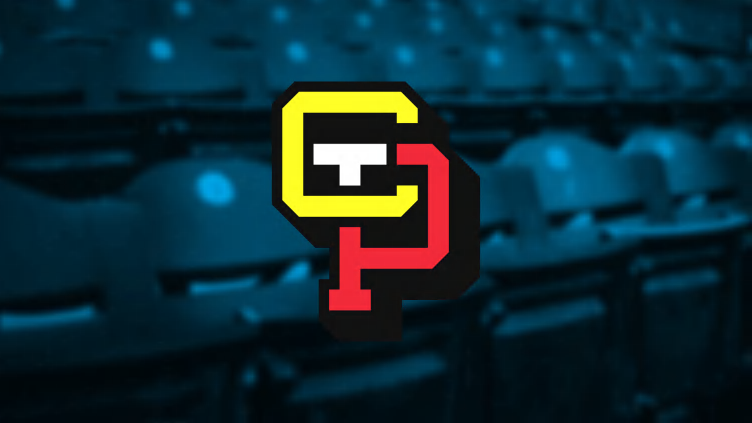
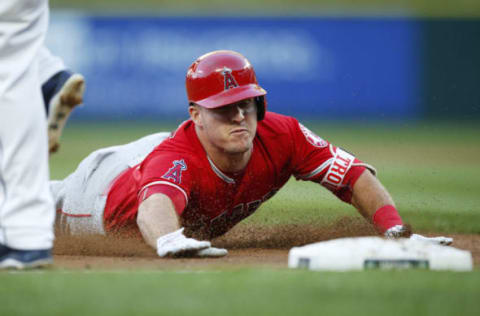
Some MLB players are flexible enough to work with any drafting strategy, but how do you need to adjust for certain first-round picks that require special strategies?
While certain MLB hitters fill up all five categories for fantasy owners or provide enough value that they are sure first-round picks and you leave the round free to pursue whatever strategy you would like to fill your team, other first-round selections change how you approach the rest of your draft.
This season seems to have a surprising amount of the latter, and as one reviews the average draft positions for players this season, it could alter your entire draft if you take certain guys with your first pick.
Whether it’s injury risk, over-reliance on one statistic, team performance issues, or a myriad of other issues, picking certain guys in the first round could mean you have to change your focus to cover up for that first-round player’s shortcomings the rest of your draft.
For this piece, we’ll look at the players currently going in the top 10 in average draft position in early season drafts. Obviously many leagues are deeper than 10 teams, but for this exercise, we’ll focus just on the top 10 players going in early drafts.
By no means is this a suggestion that any of these players is “undraftable” or that owners should be wary of drafting them, but that special attention should be given to their unique situations.
All average draft positions are taken from the National Fantasy Baseball Championships website, considered one of the best sites for those who are truly dedicated to fantasy baseball. To get a whole run down of the average draft slots, check out the whole list.
Next: Baseball's Ace
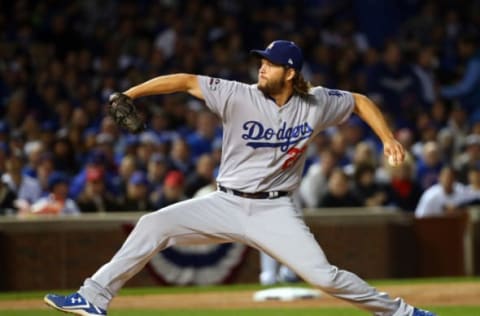
Clayton Kershaw, LHP, Los Angeles Dodgers, Average NFBC pick: 4
There is no debate whatsoever who the best pitcher in the game is. Kershaw will only be 29 on opening day, yet he’s already established himself as the most dominant pitcher in the modern era.
Kershaw is picked as early as he is due to his tremendous ability when he’s on the mound, with a career 2.37 ERA – not a career year, mind you, for his ENTIRE career!
Kershaw has also posted over a strikeout per inning through his entire career as well, actually picking up his performance in the last three seasons, topping 10 K/9 each of the last three years.
More from Call to the Pen
- Philadelphia Phillies, ready for a stretch run, bomb St. Louis Cardinals
- Philadelphia Phillies: The 4 players on the franchise’s Mount Rushmore
- Boston Red Sox fans should be upset over Mookie Betts’ comment
- Analyzing the Boston Red Sox trade for Dave Henderson and Spike Owen
- 2023 MLB postseason likely to have a strange look without Yankees, Red Sox, Cardinals
The issue with drafting Kershaw comes in the fact that in the last three seasons, Kershaw has missed time in two of those years. While on the mound, he’s been incredible, but over the last three seasons, he’s averaged just 27 starts, and while he’s thrown 193 innings with a 1.89 ERA, 0.83 WHIP, and 11 K/9 in those years, when he’s not on the mound, that leaves a big hole in a fantasy rotation.
Typically, selecting a starting pitcher in the first round allows the fantasy owner to stock up on hitting for a while, sure that he’s got an elite ace locked down.
However, with Kershaw’s most recent issue being a back issue and back issues tending to be problematic and recurring, fantasy owners selecting Kershaw may be best served selecting another starter within the first 5 rounds, and two starters in the first five rounds will put an owner behind the 8-ball as far as offense goes.
Next: Astro Mighty Mouse
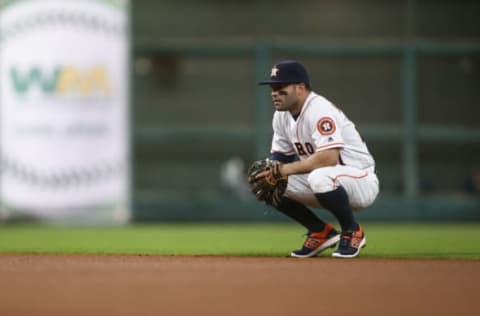
Jose Altuve, 2B, Houston Orioles, Average NFBC Pick: 3
Baseball’s own version of Mighty Mouse actually produced significant power in 2016. Many see Altuve’s three-year averages of .331 average, 15 home runs, 41 stolen bases, 93 runs, and 74 RBI from a middle infield position, and a #3 overall selection makes perfect sense.
However, that stolen base line is buffeted by 56 in 2014, and he’s gone to 38 in 2015 and 30 in 2016. However, what is notable is that Altuve moved deeper into the lineup in 2016, moving from the leadoff spot to the #3 role in the lineup at roughly the halfway point in the season.
It is notable to see how his offensive production shifted from first to second half with the lineup position change. In the first half, he stole 23 bases versus just 7 bases in the second half of the season. Nearly every other rate was the same in his power and contact numbers.
One of the primary reasons that Altuve is such a draw for fantasy owners is the dearth of speed in the game currently. Altuve’s 30 stolen bases tied him for 10th in the entire game. However, if he’s going to be running at his second half pace, he’s more of a guy who will be a 20 steal guy.
Owners planning that they’ve locked up a significant portion of their steals with Altuve in 2017 could find themselves sorely lacking unless they acquire another steals source in the draft.
Next: Hot Corner Oriole
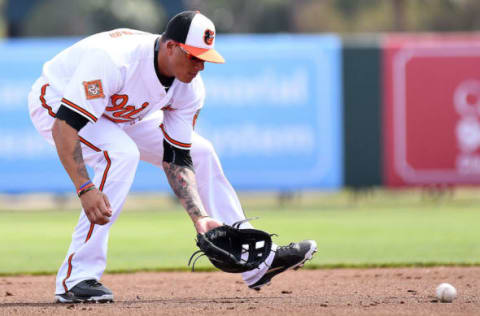
Manny Machado, 3B/SS, Baltimore Orioles, Average NFBC pick: 8
Entering just his age 24 season with back-to-back 30-home run, 100-run seasons, Machado seems almost undervalued at pick 8 on average. When you consider that he will qualify this season at both third base and shortstop, he also adds in value.
However, Machado is another player who is affected by fantasy players hoping on some level of speed production due to the lack of speed in the current game.
In 2015, Machado provided that level of speed, as he stole 20 bases. However, base stealing is not one of Buck Showalter‘s fortes as a manager. In fact, in 2016, the entire Orioles roster stole only 19 bases, and Machado contributed exactly zero to that total.
Another misconception about Machado is his contact ability. While Machado is not a poor hitter by any means, his career average is .284, and he’s never once cleared .295 with his batting average.
Though there’s certainly every chance that he could take another step at only 24 years old, there’s a good amount of projection into future statistics to draft him above many other options being selected outside the top 10, like Josh Donaldson, Anthony Rizzo, or Miguel Cabrera.
In selecting Machado, it’d behoove a fantasy owner to secure someone with a more secure production offensively behind him, perhaps like an Edwin Encarnacion or Cabrera if possible.
Next: Washington's Main Man
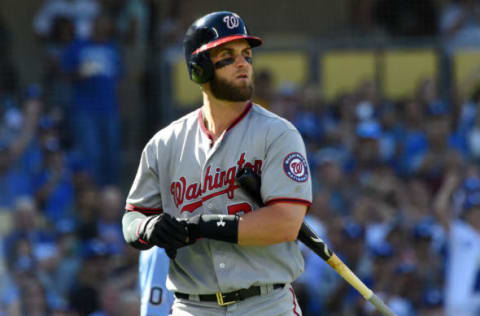
Bryce Harper, OF, Washington Nationals, Average NFBC pick: 9
After a 2015 when he led the major leagues in on base and slugging at just 22 years old with 42 home runs, Harper was drafted among the first 2-3 selections in 2016 drafts, so seeing him at #9 is actually having him drop quite a bit this season.
However, after a 2016 where he hit only .243 with 24 home runs, many fantasy owners are wondering if his 2015 could be the aberration, with his 24 home runs last season marking his second-most in his five seasons.
While in 2015, Harper was solid throughout the season, his 2016 started off much like that 2015 but seemingly hit a wall. In April, Harper hit .286/.406/.714 with 9 home runs and 5 stolen bases. His entire second half, he only hit 5 home runs.
One thing notable in his 2016 was that Harper did show off his tremendous athleticism, stealing 21 bases (though he was caught 10 times). He did walk 108 times, so he was still able to get on base at a good clip.
In August, SI’s Tom Verducci revealed that Harper had been playing through an injury in 2016 that limited his ability to produce solid contact.
While he has reported healthy this spring, like Machado, Harper is simply a guy that requires a more secure hitter paired with him in order to balance the risk that is inherent with Harper, in spite of his elite ability.
Next: Late Season Push
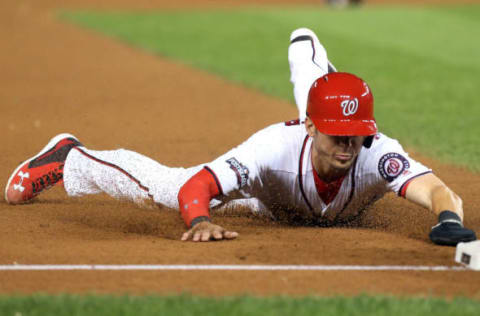
Trea Turner, SS/2B/OF, Washington Nationals, Average NFBC pick: 10
Every MLB preseason has a fantasy darling that owners are all fawning over and begin to push up well beyond where the player’s previous production has warranted.
This season, that player could be Turner.
Turner had a bright debut in 2015, leaving many owners eager to see him make his 2016 debut. Turner came up for a cup of coffee on June 3rd and 4th, but he wasn’t up for good until a month later, in early July.
In just 73 games, Turner hit .342/.370/.567 with 13 home runs, 33 stolen bases, and 8 triples. That sort of production is pretty incredible, and it’s obvious why fantasy owners would be interested in getting that sort of player on their team.
Many have pointed to Turner’s .388 BABIP last season as a reason to have concerns about Turner’s 2017, but that number is actually quite in line with Turner’s minor league norms, so that isn’t what should keep owners of Turner up at night.
In 2016, Turner played his second full season of professional ball, playing in 156 combined games between AAA and the major leagues, tallying 695 at bats combined, 19 home runs, and 58 stolen bases.
Many owners have taken to combining those statistics to extrapolate what Turner will do in 2017.
Instead, what should concern owners is Turner’s sub-5% walk rate in 2016 and that his power came on an isolated slugging 70 points better than anything he’d produced at any minor league level.
While his BABIP isn’t out of line, how he got there is also a bit concerning. He had an incredible amount of success on ground balls, which isn’t surprising, but he also had roughly 90 points higher BABIP on fly balls than what would be expected. Those sorts of hits regulating could really lead to a change in Turner’s fantasy profile.
Turner is one of the most high-upside picks early in picks, with the chance to get 15-20 home runs with one of the better exit velocities of the second half of the season along with the speed to steal 40+ bases. In a solid Nationals line up, that could lead to significant run production.
However, that should all be tempered as he is such a high variable player. His owner would be well-served to draft a secure guy in the categories he’s hoping for with Turner – someone like Martin Prado for batting average, for instance, among other contributions you expect.